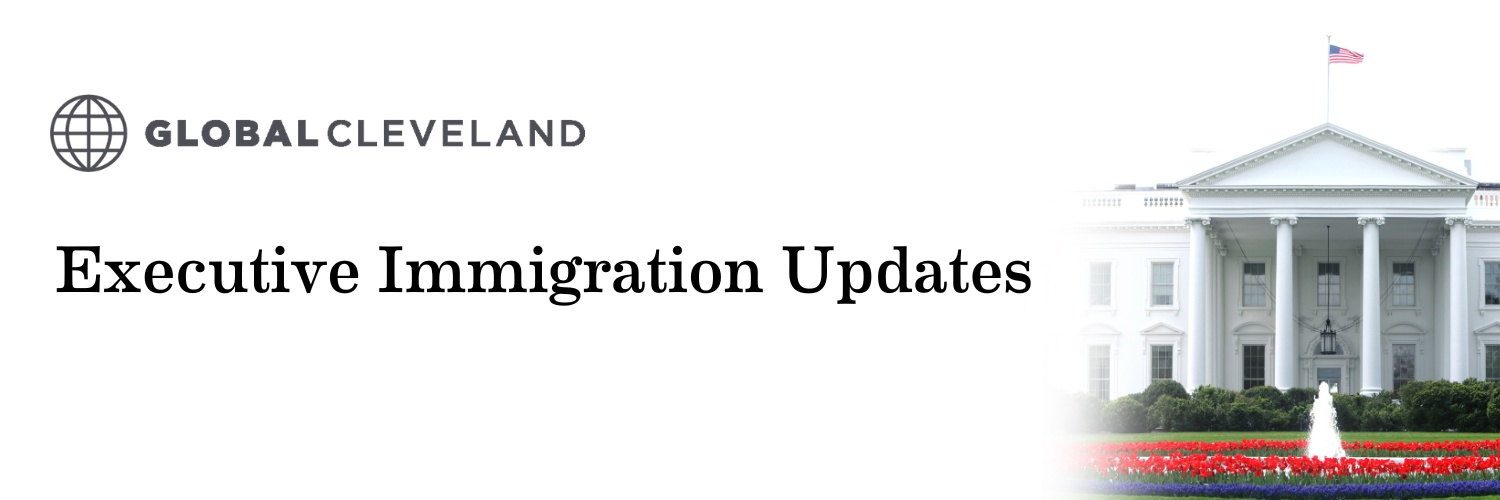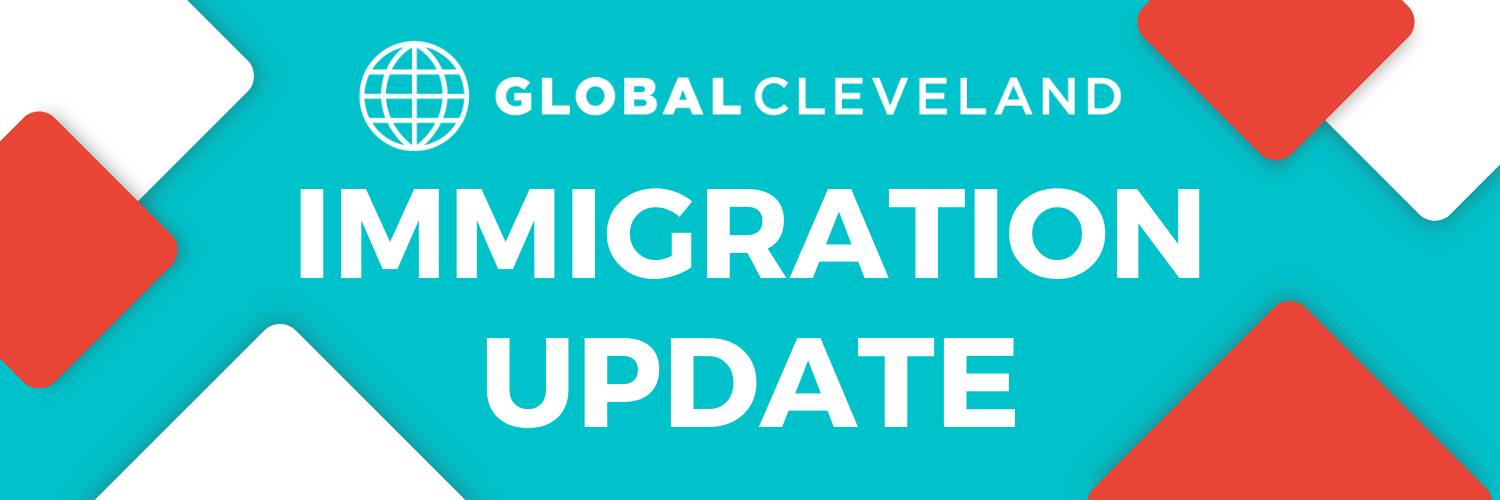October 2023 Immigration Update
In this October 2023 immigration policy update we will delve into the most recent updates in immigration-related matters, covering legislative, executive, and judicial aspects.

White House Budget Seeks $14 billion for immigration system
President Biden’s White House budget proposal sought $14 billion – up from $10 billion in August – for immigration related policy. The proposal would increase funding for Customs and Border Protection, adding additional officers and funding aimed at combatting fentanyl importation. The request also contains emergency funding for Immigration and Customs Enforcement, as well as calls for more western hemisphere cooperation to screen potential migrants, using Safe Mobility Offices in Colombia, Guatemala, Costa Rica, and Ecuador. Finally, it aims to speed up asylum and workforce permit processing, as well as increasing the capacity of immigration courts
Source: Immigration Impact
Texas moves forward immigration legislation
Texas lawmakers moved forward an immigration and border security bill that has aroused significant controversy since it was introduced. One bill, SB-4, would crack down on human smuggling with a 5-10 year prison sentence. The bill did have some cross party support in the Texas Senate.
A second proposed law, SB-11, would make it a state crime to enter Texas from Mexico from any point that was not an authorized point of entry. Senator Juan Hinojosa, who supports SB-4, criticized SB-11, saying it was not a real solution and would simply swell county jails.Armando Walle, another critic, opposed the bill because it gives too much discretion to police, especially those who are not trained to enforce immigration laws.
Source: Houston Public Media
Louisiana Rep Mike Johnson Elected Speaker
After a long process, where previous speaker nominees Steve Scalise, Jim Jordan, and Tom Emmer were unable to get enough votes secure a majority, little-known Louisiana Rep. Mike Johnson was elected as the new Speaker of the House. Johnson has introduced legislation to raise the bar on the requirement of asylum seekers.
Source: Politico
Legislative Situation Means Lack of Federal Support for Ukrainian Refugees
A USCIS article looked at the unintended consequences of the US Congress’ budget debate for Ukrainians fleeing the Russian invasion of Ukraine. Right now, Ukrainians arriving after September 30th are unable to access welfare benefits or resettlement services.
Read the Report: https://sway.office.com/G2sJzODXxs6iY3Cs?ref=email

Government Settles Family Separation Lawsuit
The US Government settled with 4,000 migrants separated from their families under the presidency of Donald Trump. The settlement allows them to live and work in the US for three years, during which time they can receive housing, mental health assistance, and legal assistance to apply for asylum. The resulting settlement also prohibits the federal government from separating migrant families for the next eight years.
Source: NBC News
Administration announces changes to H1-B Program
The Biden administration unveiled major changes to the H-1B Visa program. These include:
- Multiple entries by employers on behalf of the same employee are no longer permitted
- The “employer-employee relationship” requirement, introduced in 2010, was repealed. It has been considered a major roadblock for entrepreneurs
- Remote job offers are now permitted
- The “Cap-Gap” provision for F-1 visas are extended
- USCIS will increase site visits
Source: USCIS
Venezuela, US Agree to Hold Presidential Elections in Exchange for Sanctions Relief
The US lifted sanctions on Venezuela’s oil industry as part of an understanding that the government, considered a dictatorship by international NGOs, hold competitive elections. The government allowed a competitive primary to be held, which was won by opposition activist Maria Corina Machado, who had previously been barred from politics (and could still be disqualified). Venezuela is a major source of asylum seekers, as the country has been in a severe political and economic crisis for more than a decade.
DHS Announces new Family Reunification Process for Ecuadorian migrants
The Department of Homeland Security unveiled a new family reunification parole process for which some Ecuadorian immigrants will be eligible for. Eligible will be Ecuadorian nationals who have “family members are U.S. citizens or lawful permanent residents and who have received approval to join their family in the United States. Specifically, Ecuadorian nationals and their immediate family members can be considered for parole on a case-by-case basis for a period of up to three years while they wait to apply to become a lawful permanent resident.” A federal register notice will be published soon, providing greater detail on the change.
Source: DHS
US Resumes Deportation Flights to Venezuela
The US government resumed deportation flights to Venezuela for the first time in years. A total of 130 Venezuelans were flown back to Caracas, Venezuela’s capitol, by Immigration and Customs Enforcement (ICE).
Administration looking at H-1B Visa Renewal
The Biden administration is examining a rule for H-1B Visa renewal that offers options to renew without having to leave the US. US-based renewals, discontinued in 2004, may make the process more convenient for applicants as well as reducing the workload on consular offices overseas.
Source: Bloomberg Law
New Study Spotlights Economic Impact of TPS Holders
Research from the American Immigration Council looked at immigrants granted Temporary Protective Status (TPS) and their economic impact. It found that they spent billions in taxes and spending, and contributed to regional economies through home purchases. TPS households had a higher rate of entrepreneurship than the US born workforce (14.5% vs. 9.3%), paid $1.3 billion in federal taxes and $966.5 million in local taxes, and held $8 billion in purchasing power. 94.6% were employed in 2021.
Source: Immigration Impact

Government Accountability Office Reports on Case Backlog
Rebecca Gambler, of the Government Accountability Office, testified to congress about the backlog in U.S. Immigration Court. The Executive Office for Immigration Review EOIR was found to have no strategic workforce plan to address the case backlog.
Immigrant Rights Groups Sue for more info on Migrant Cases
American Immigration Council (AIC) joined the Center for Gender and Refugee Studies to take legal action to compel the government to release information about migrants denied asylum for not obtaining an appointment on the government CBP One app. The app was criticized as “inaccessible to the most vulnerable and marginalized people seeking asylum” by the AIC, and was plagued by glitches.
Source: American Immigration Council
Explore Previous Immigration Updates
July 1, 2024
June 2024 Immigration Update
June 6, 2024
May 2024 Immigration Update
May 2, 2024
April 2024 Immigration Update
April 2, 2024
March 2024 Immigration Update
March 5, 2024
February 2024 Immigration Update
February 8, 2024
January 2024 Immigration Update
January 4, 2024
December 2023 Immigration Update
October 3, 2023
September 2023 Immigration Update
September 6, 2023
August 2023 Immigration Policy Update
July 31, 2023


